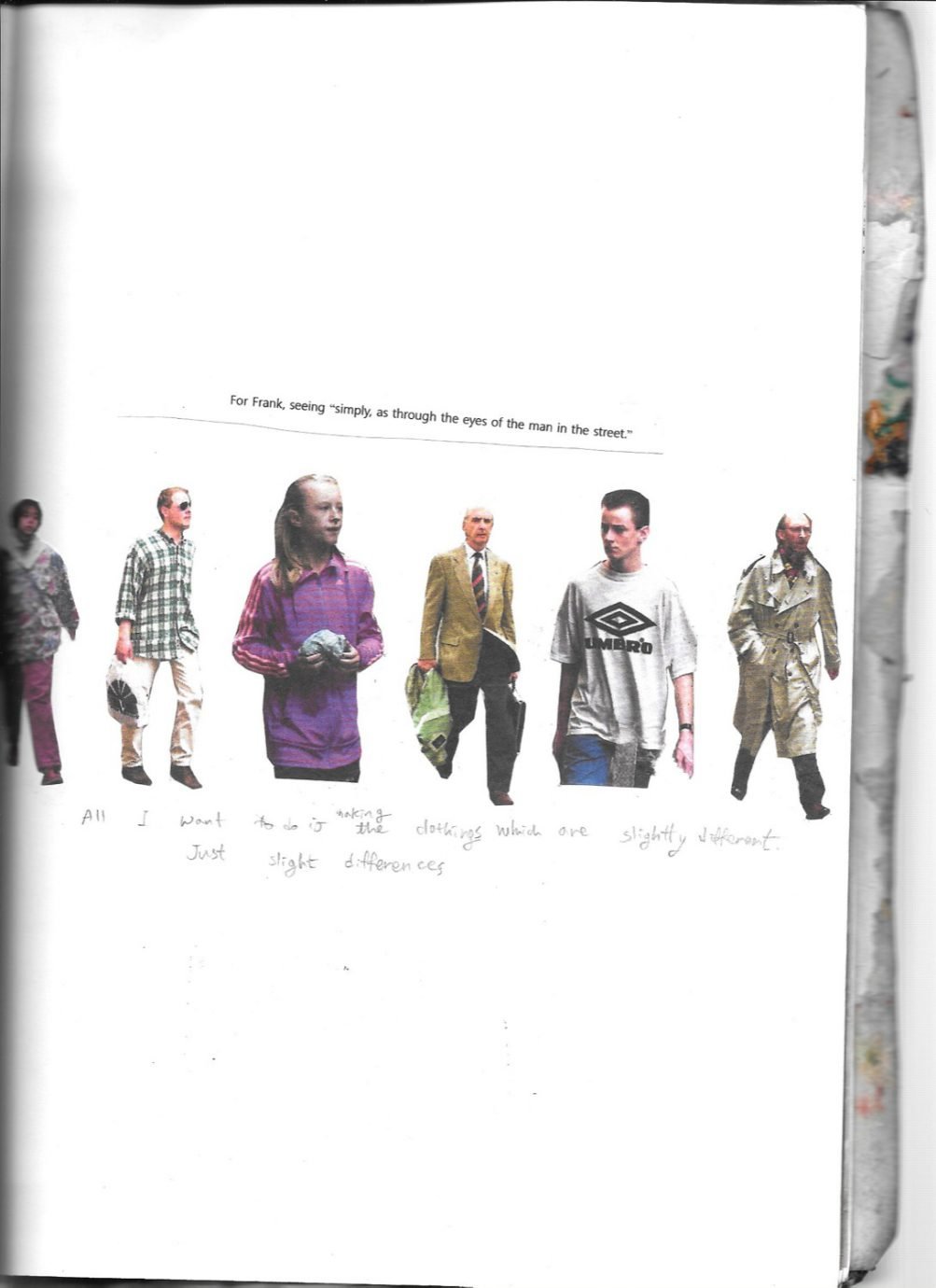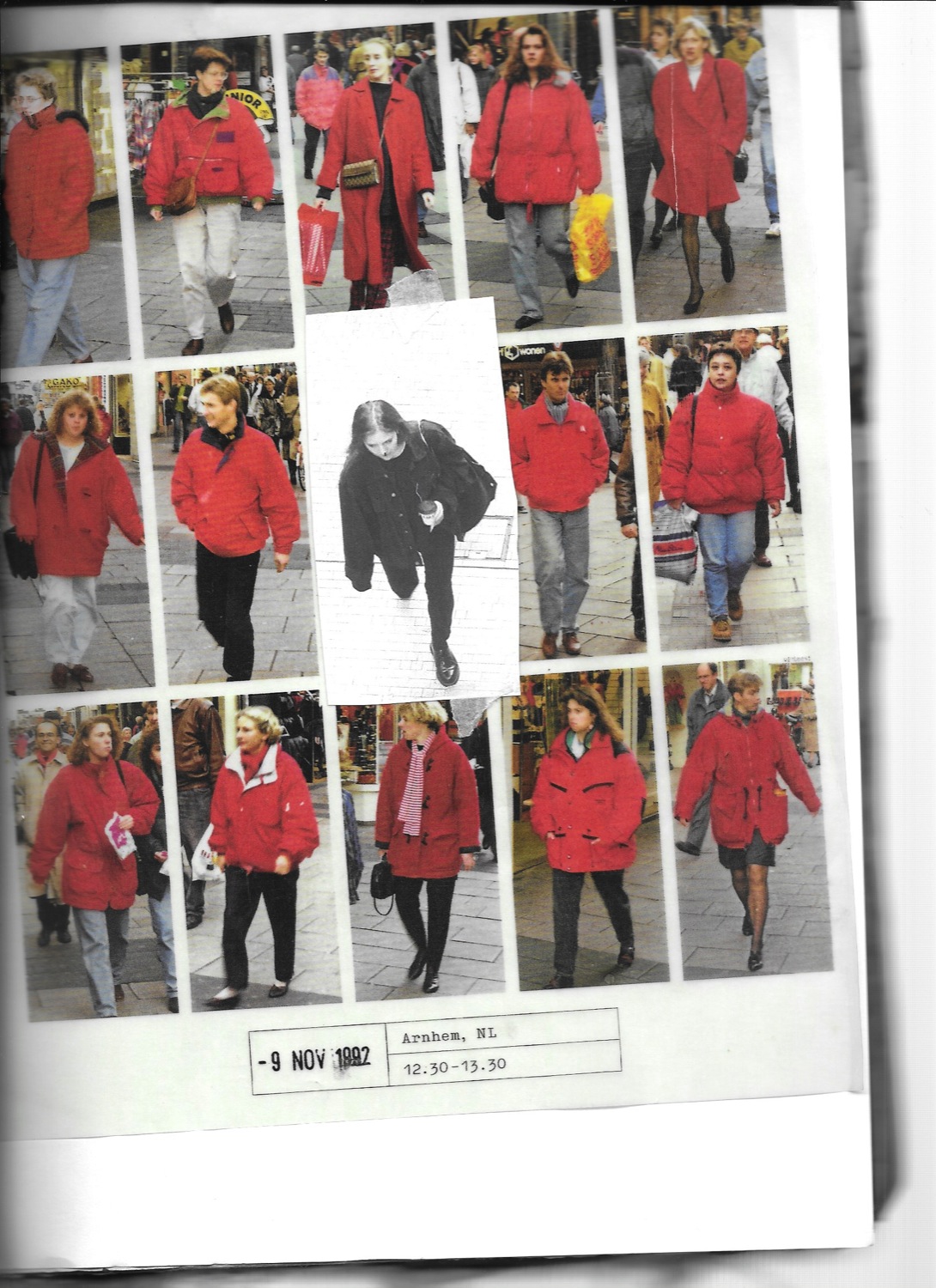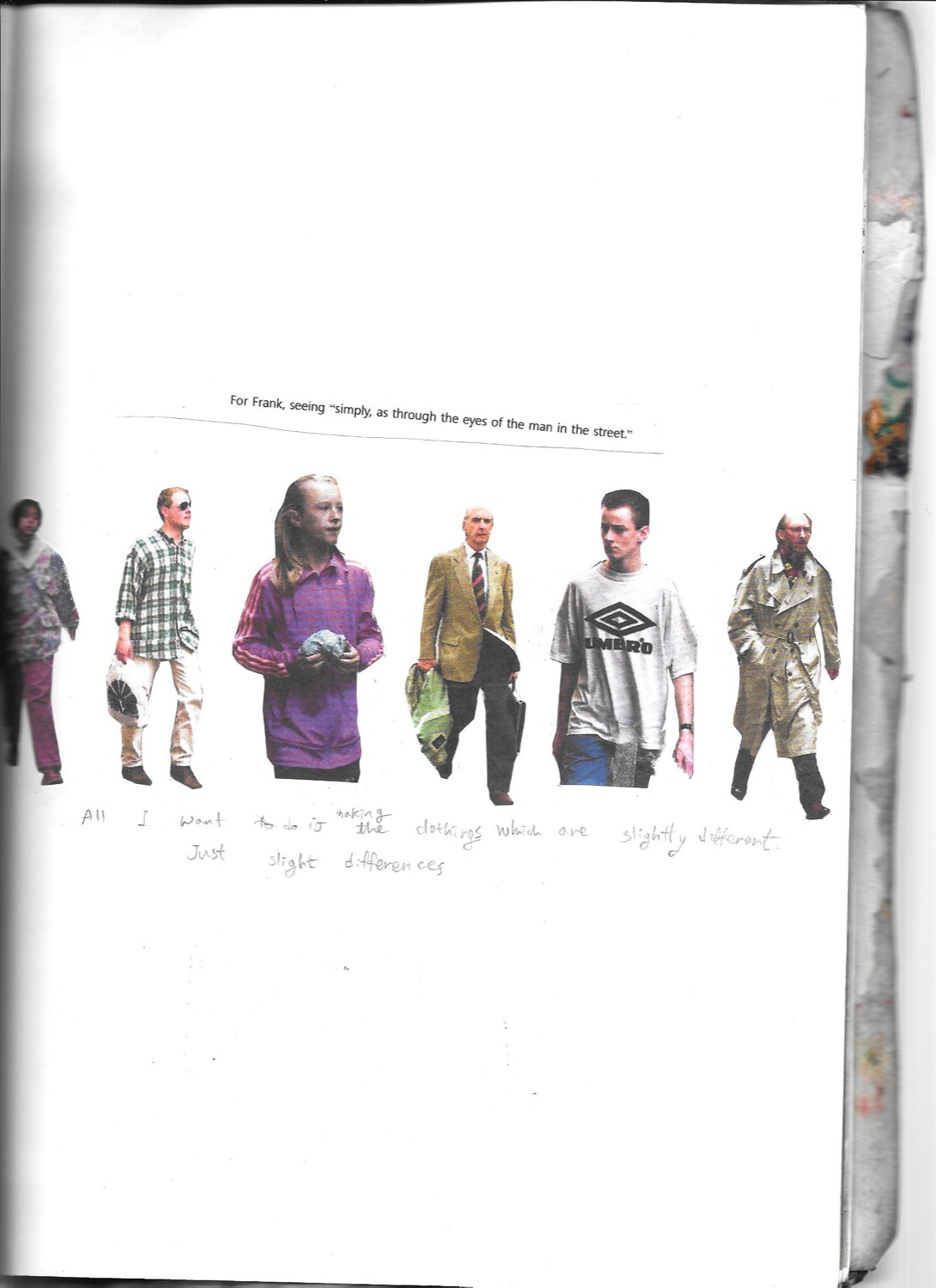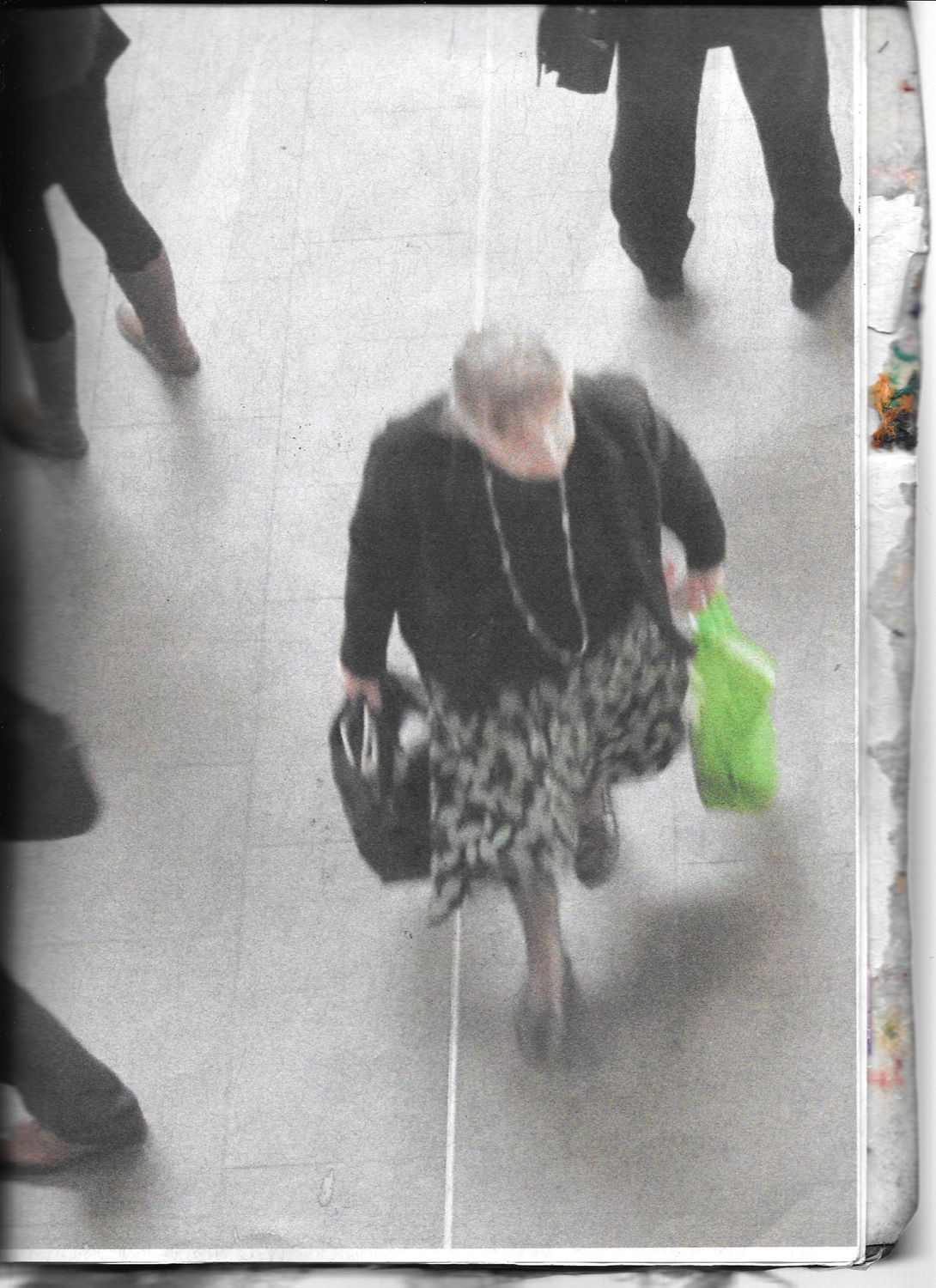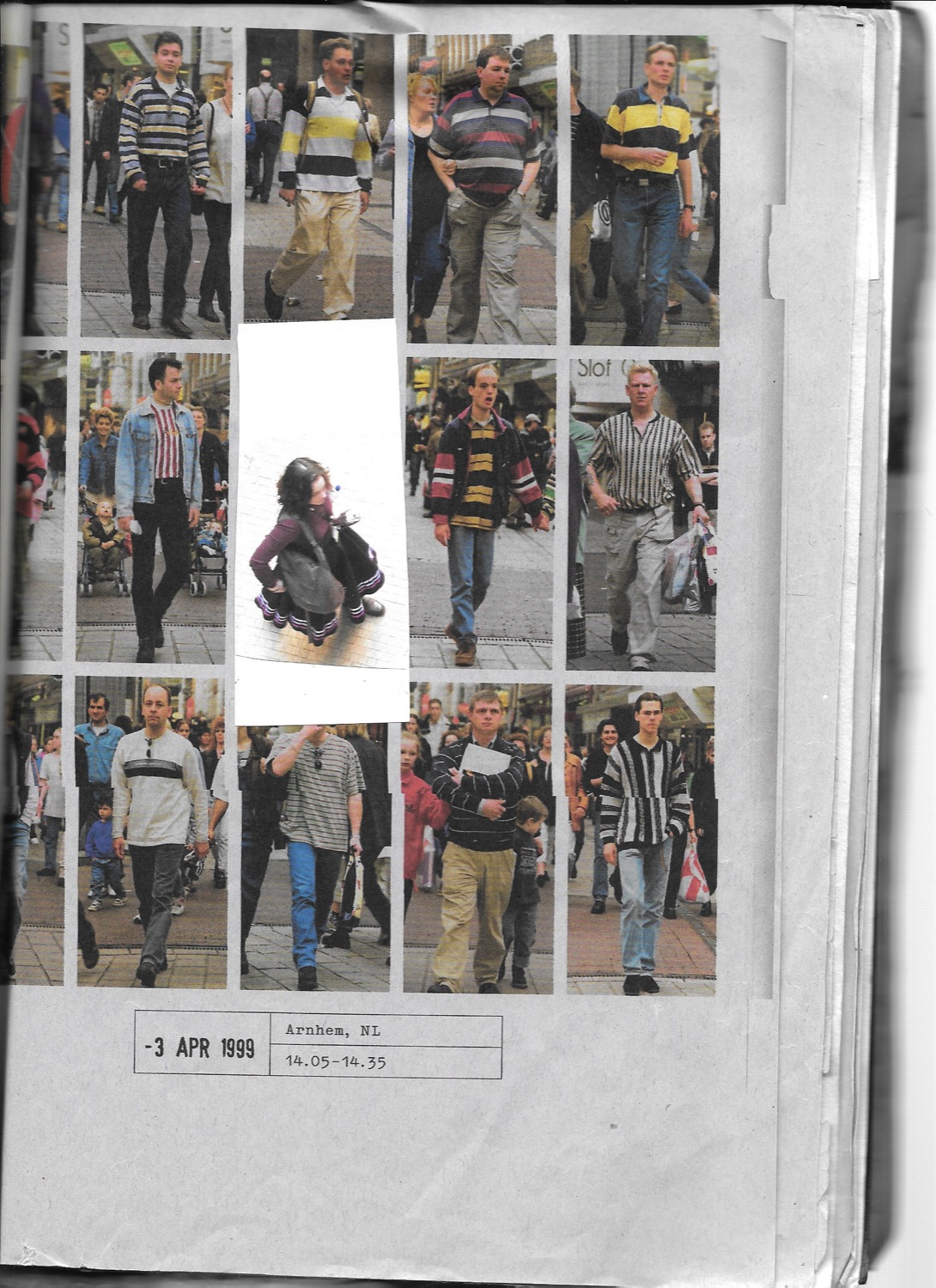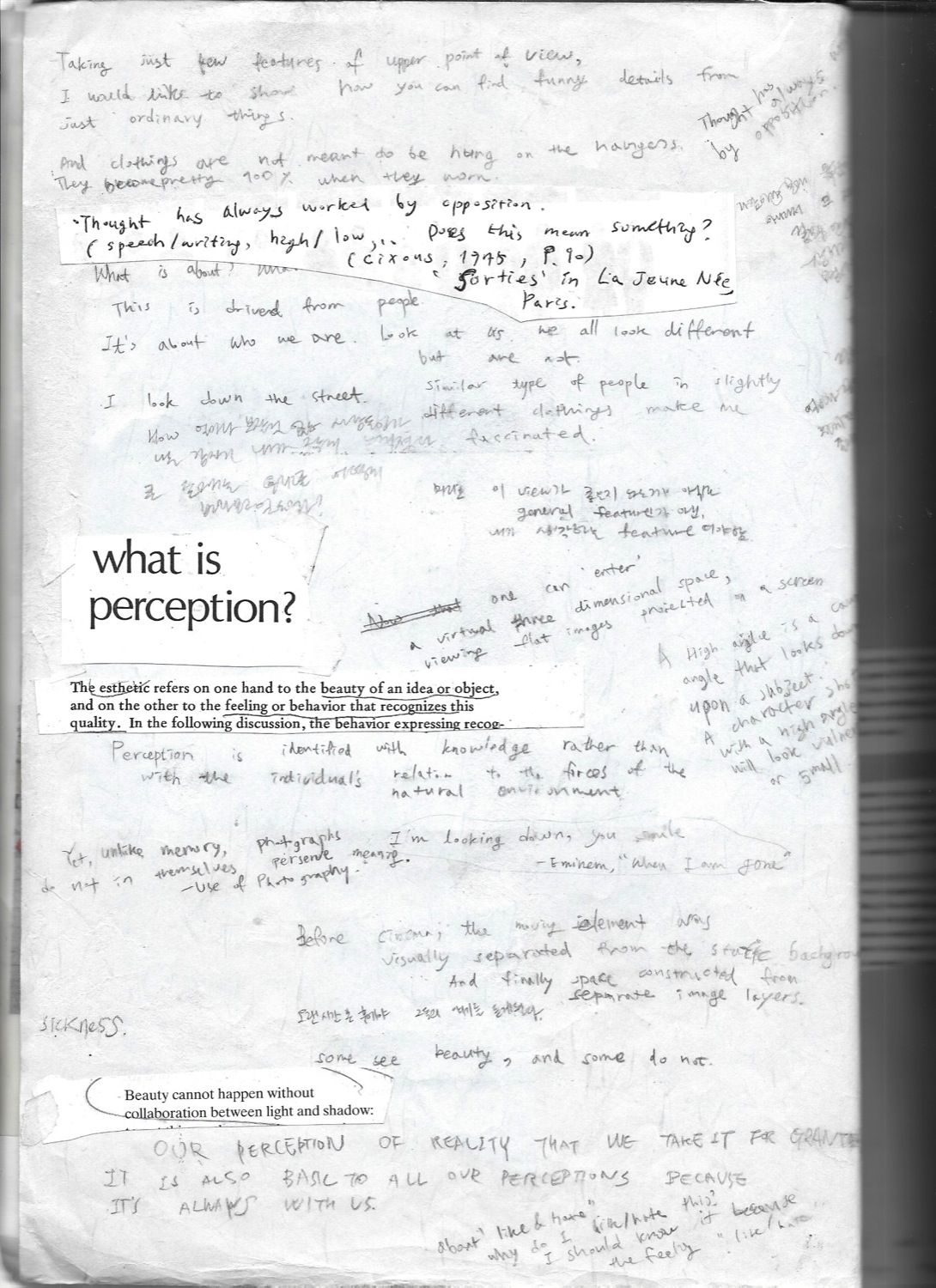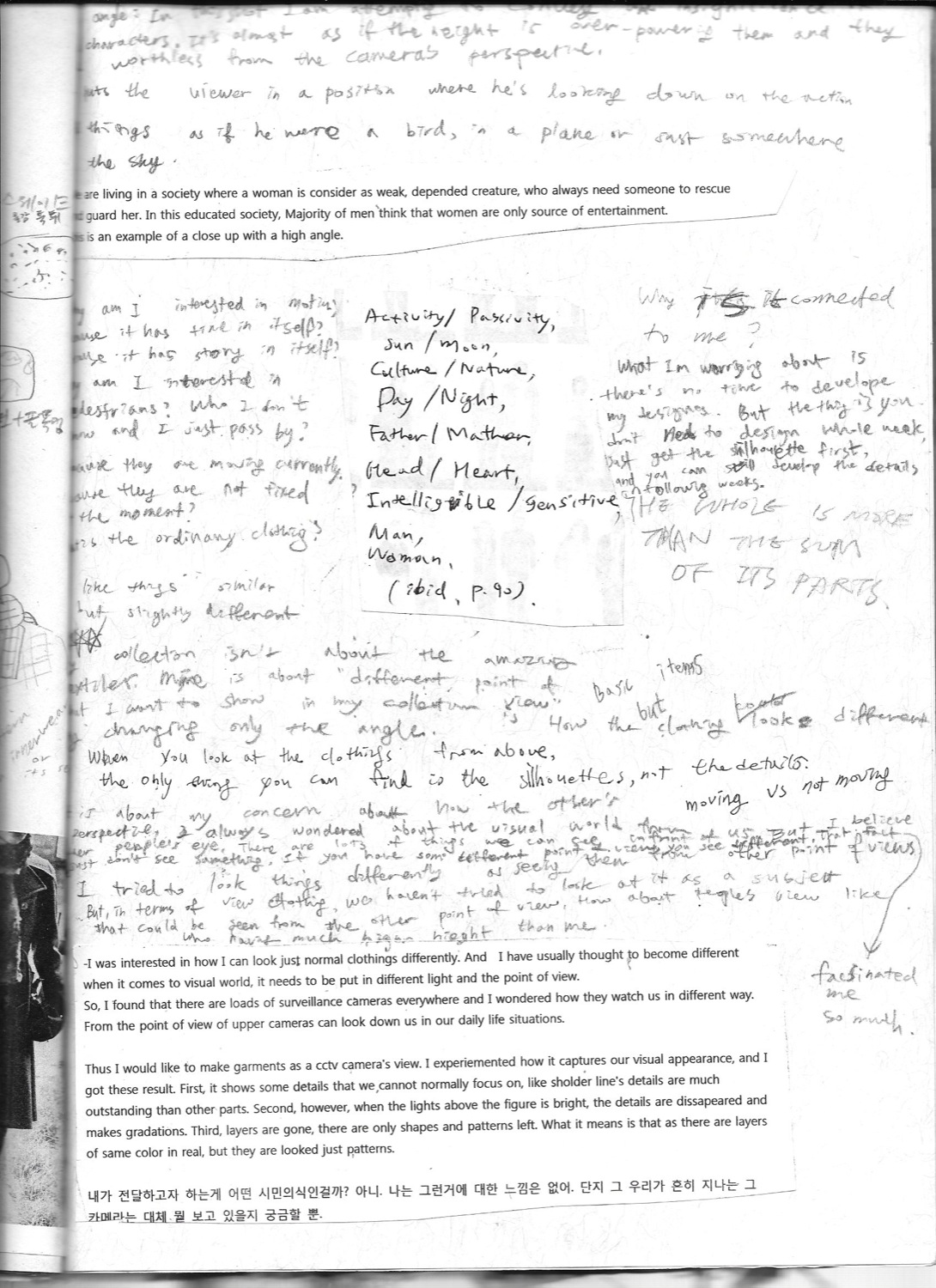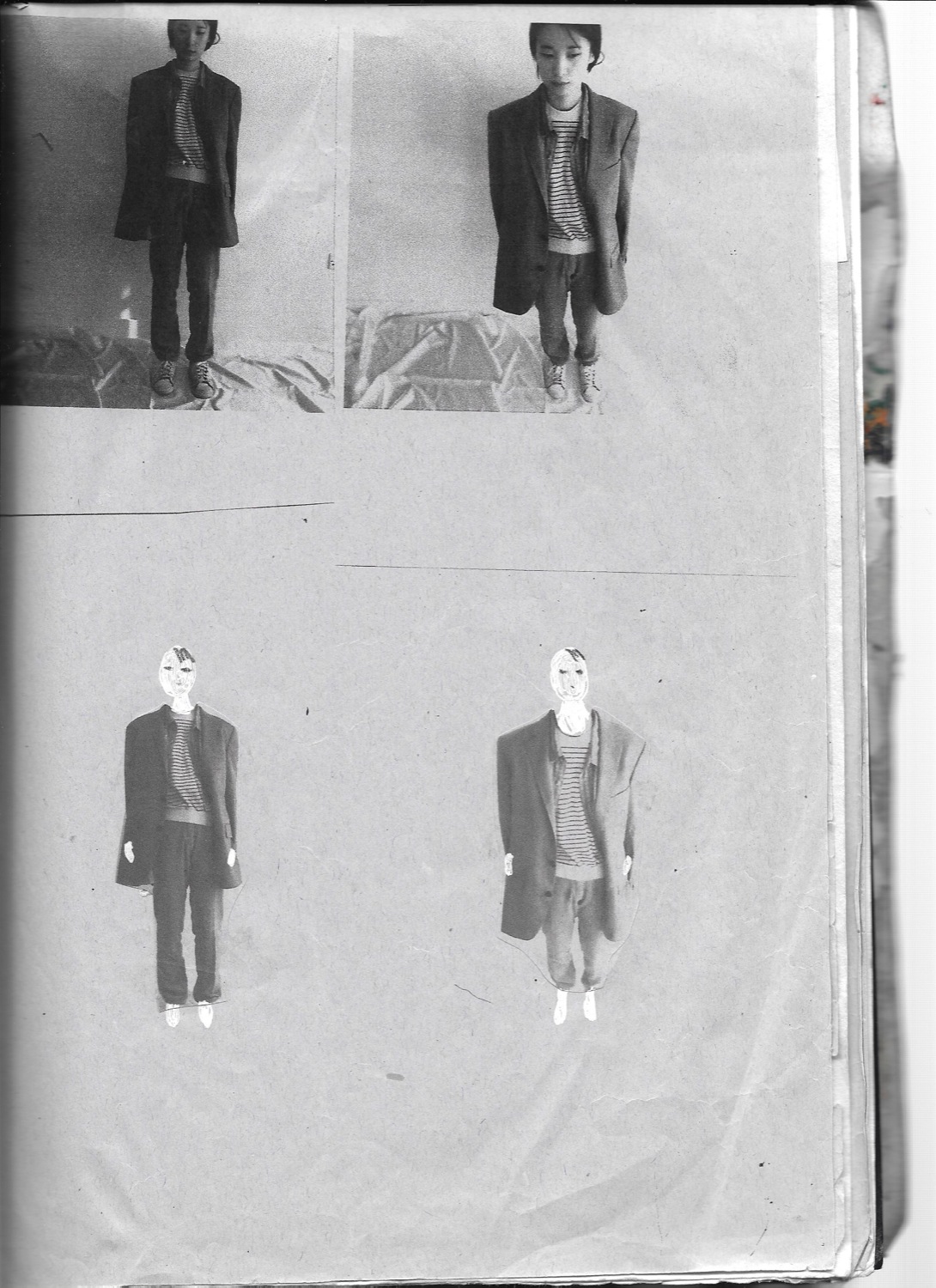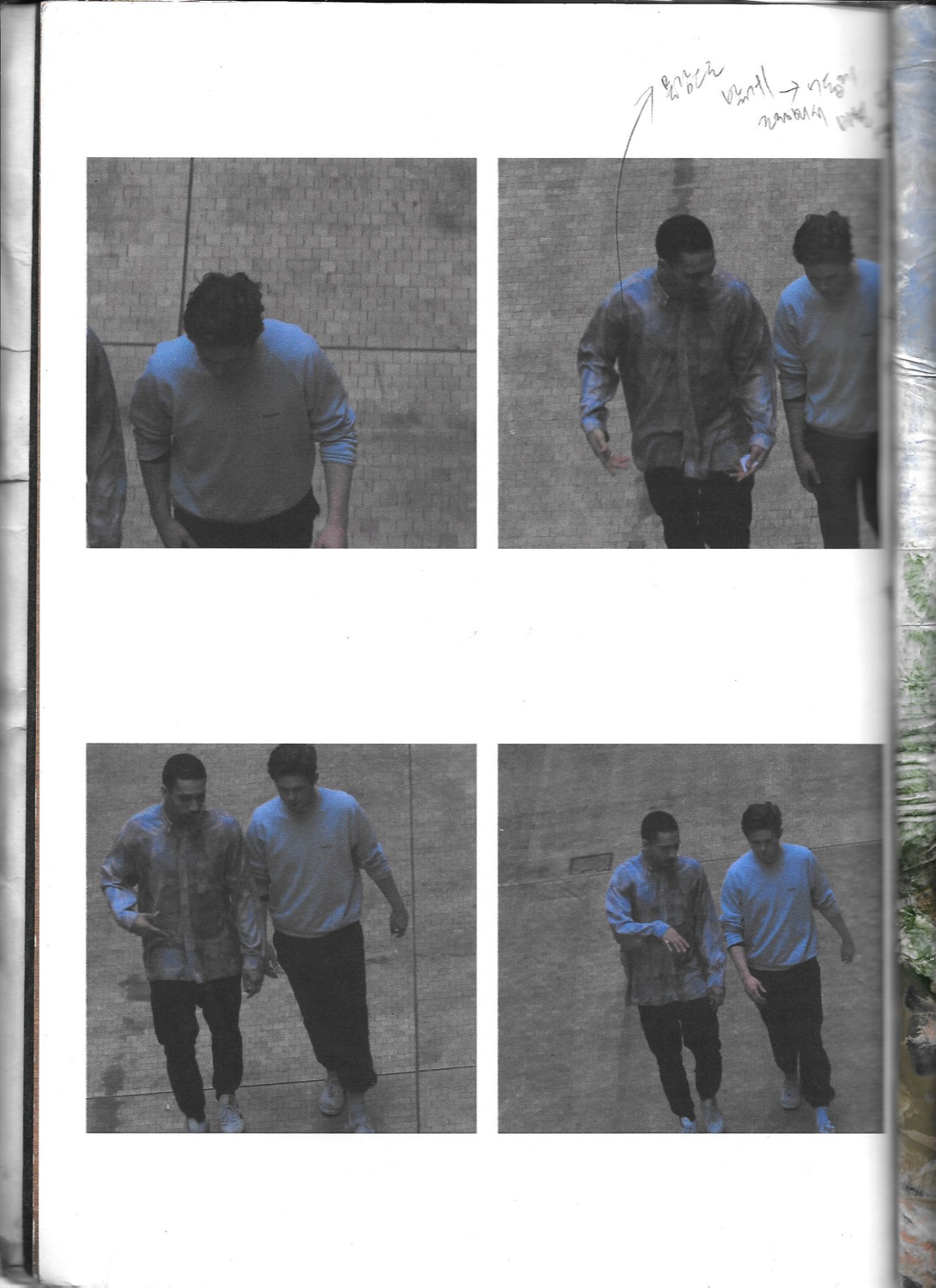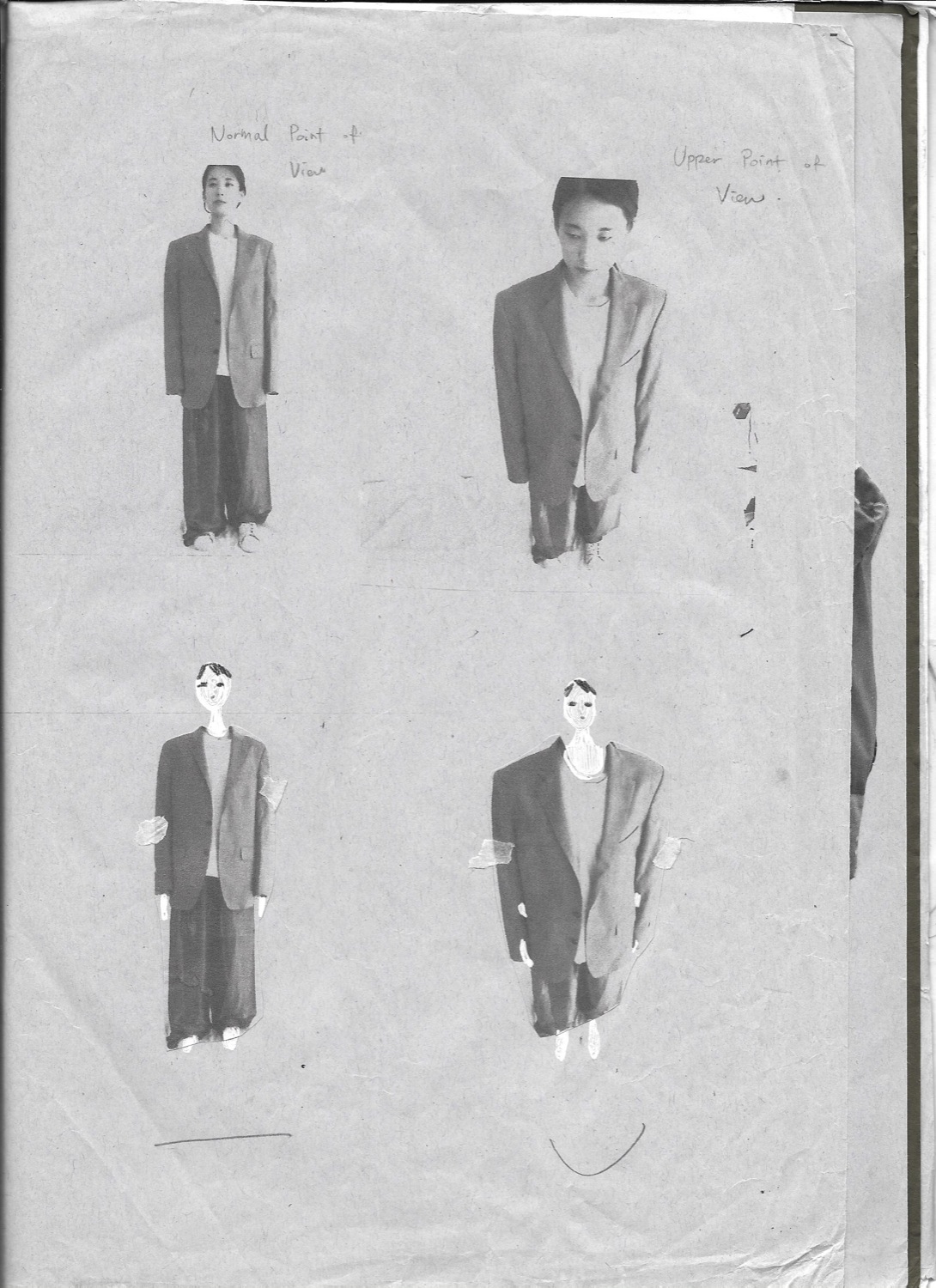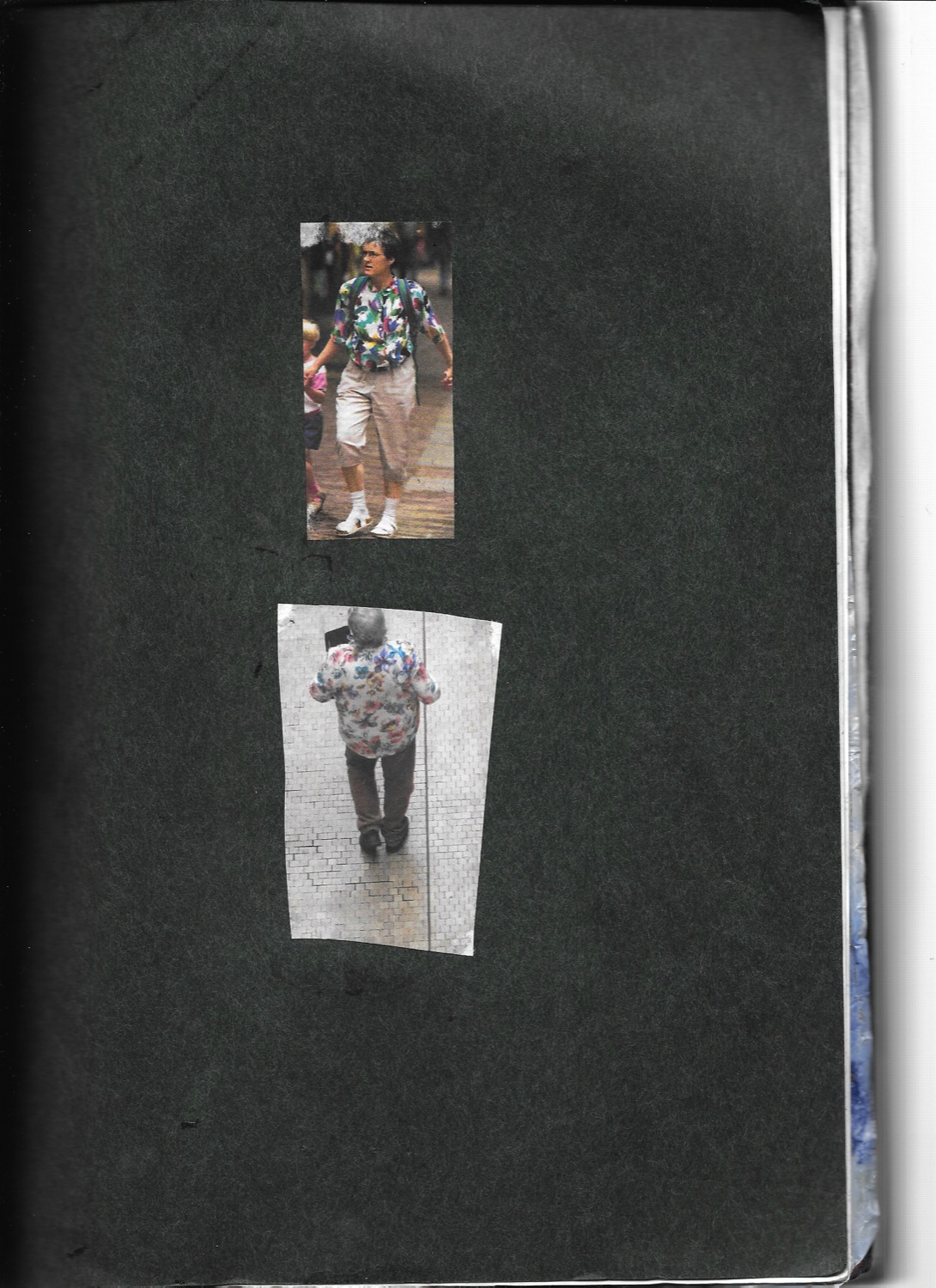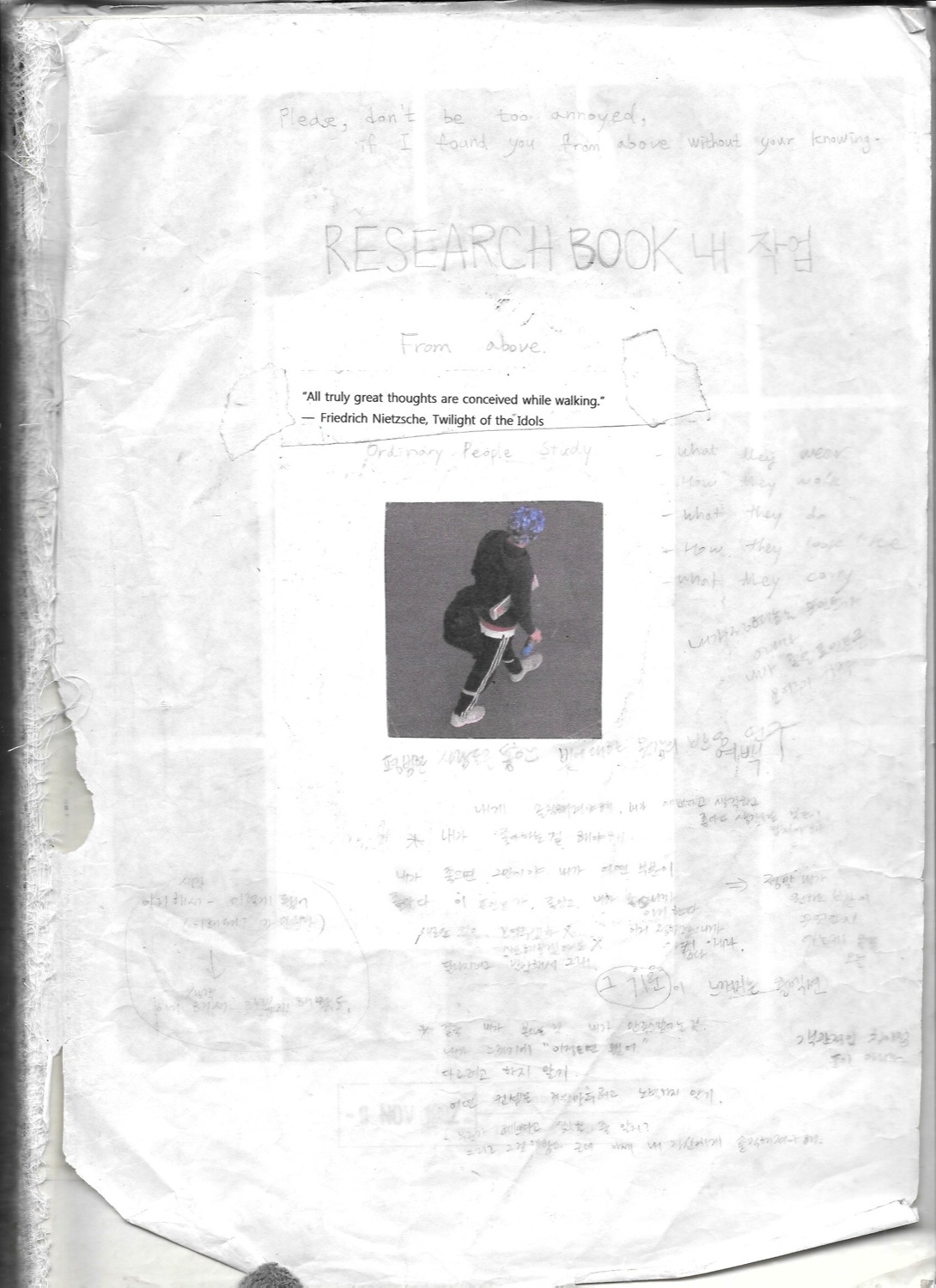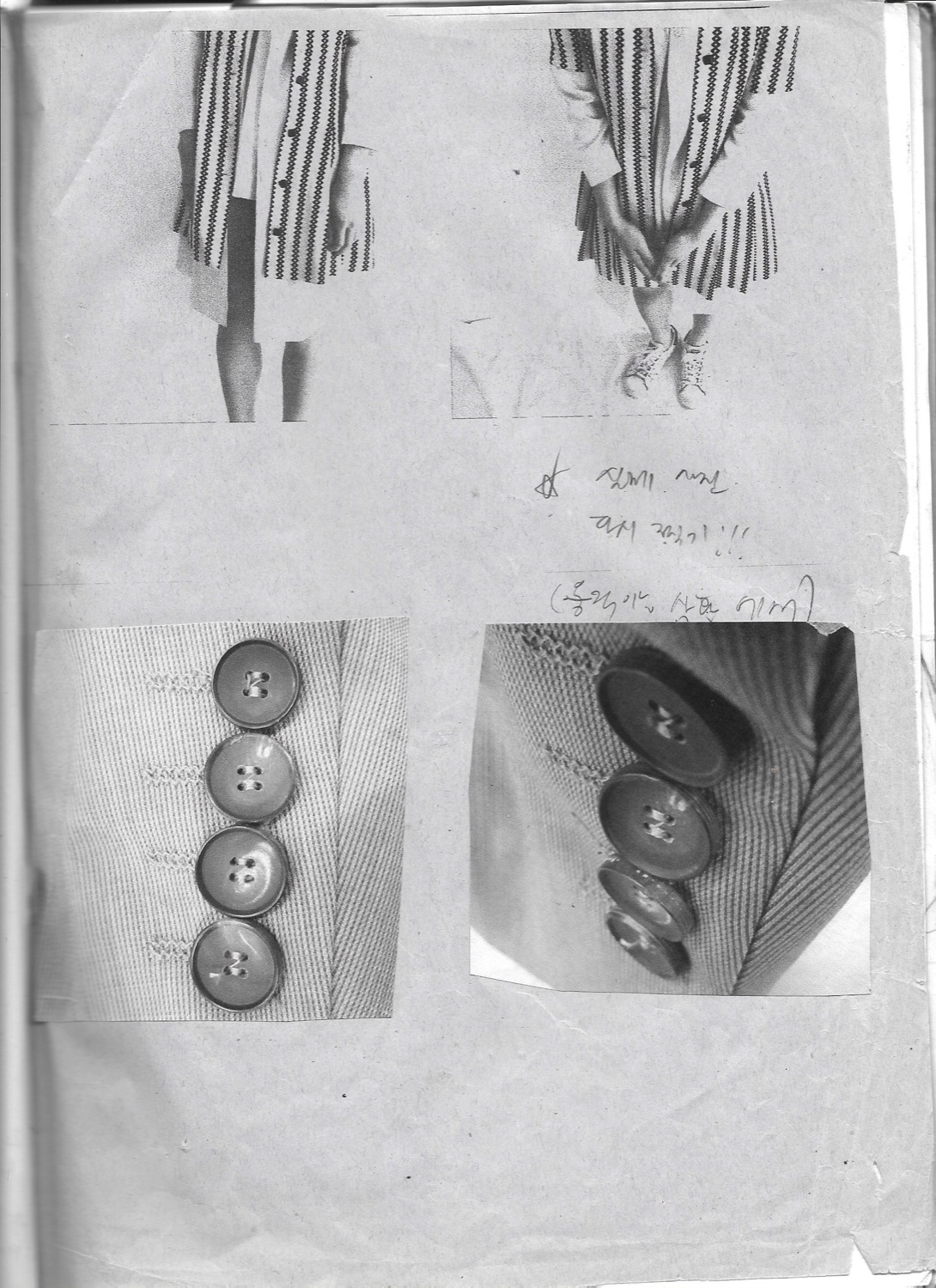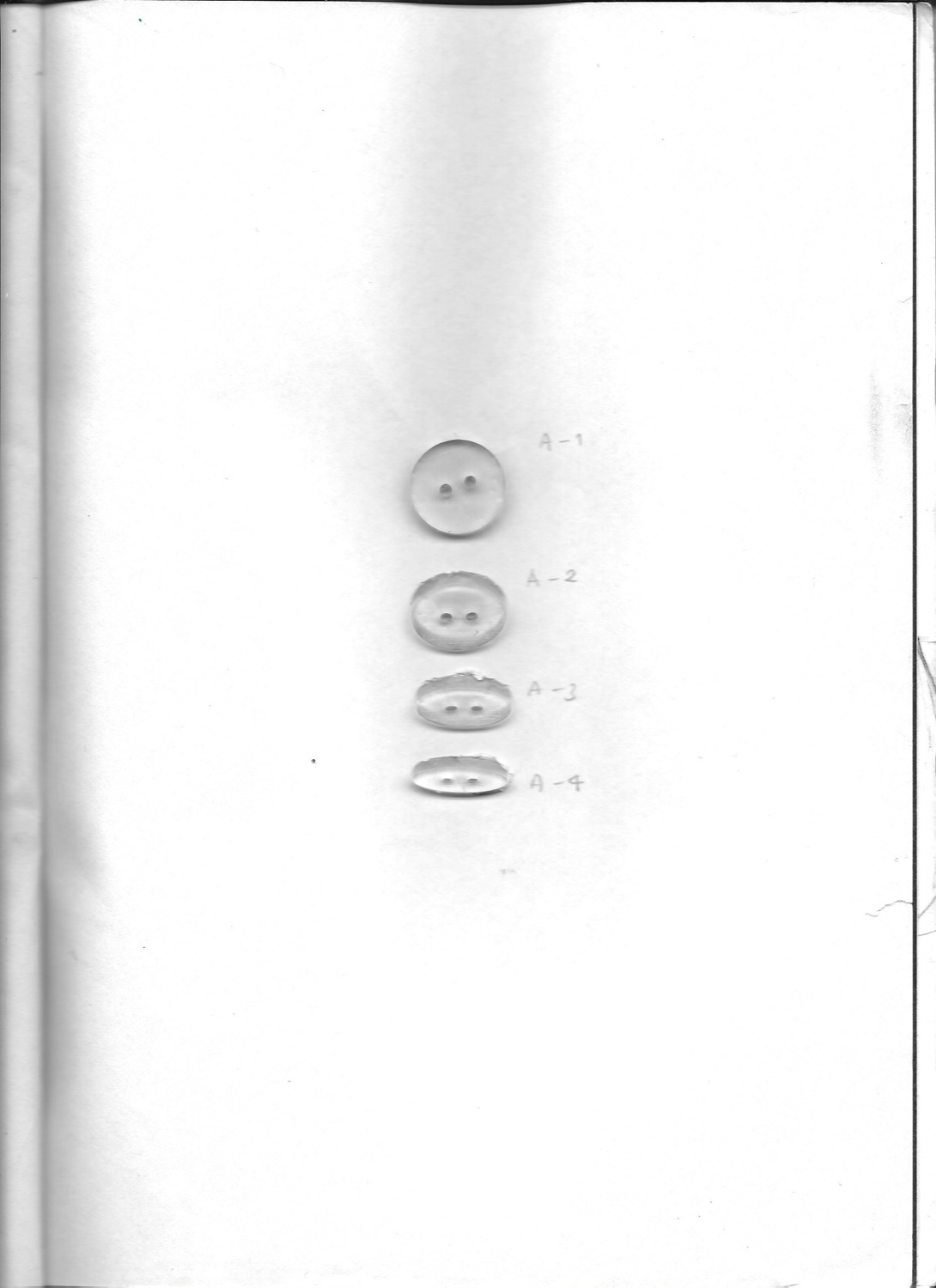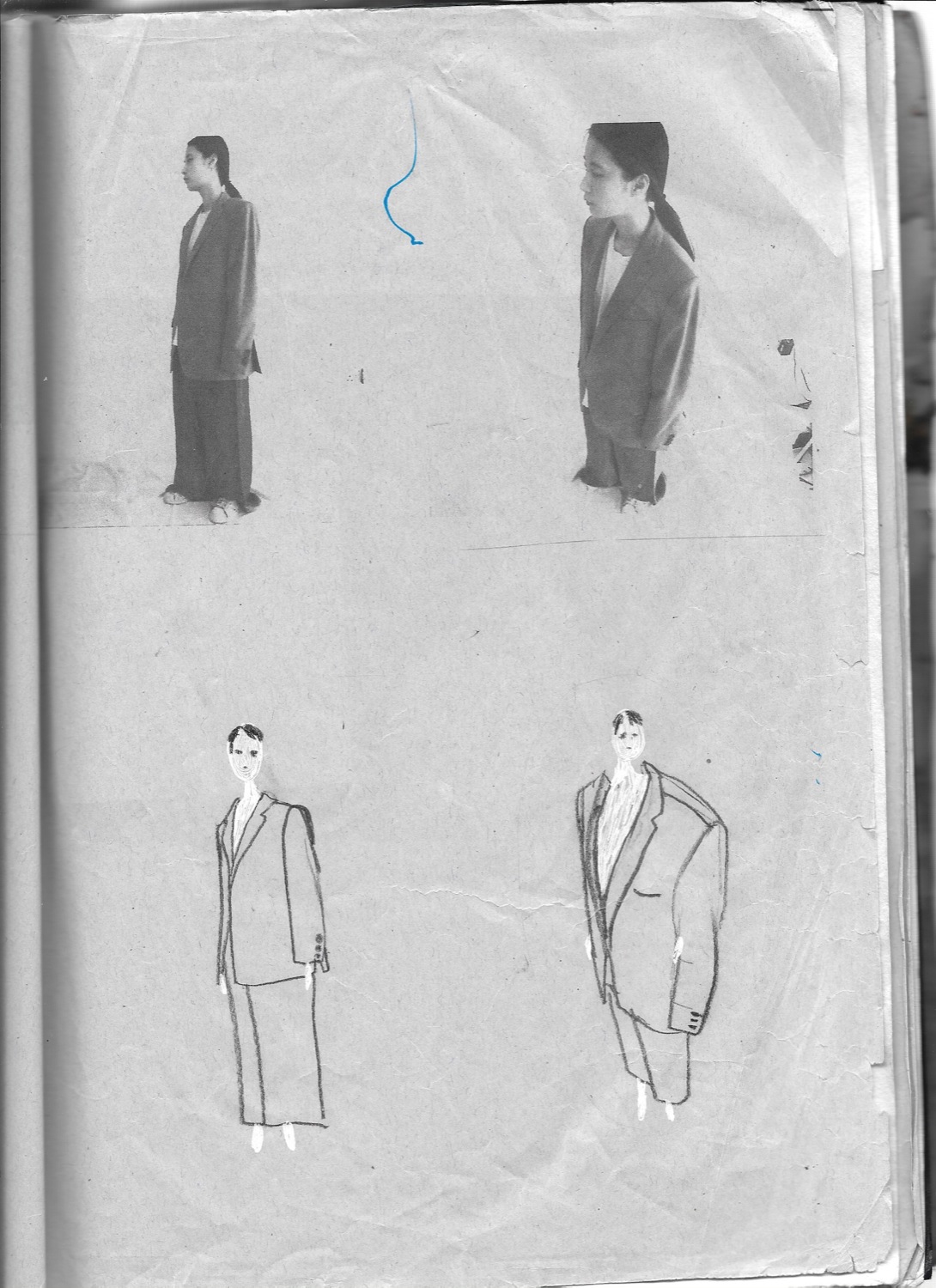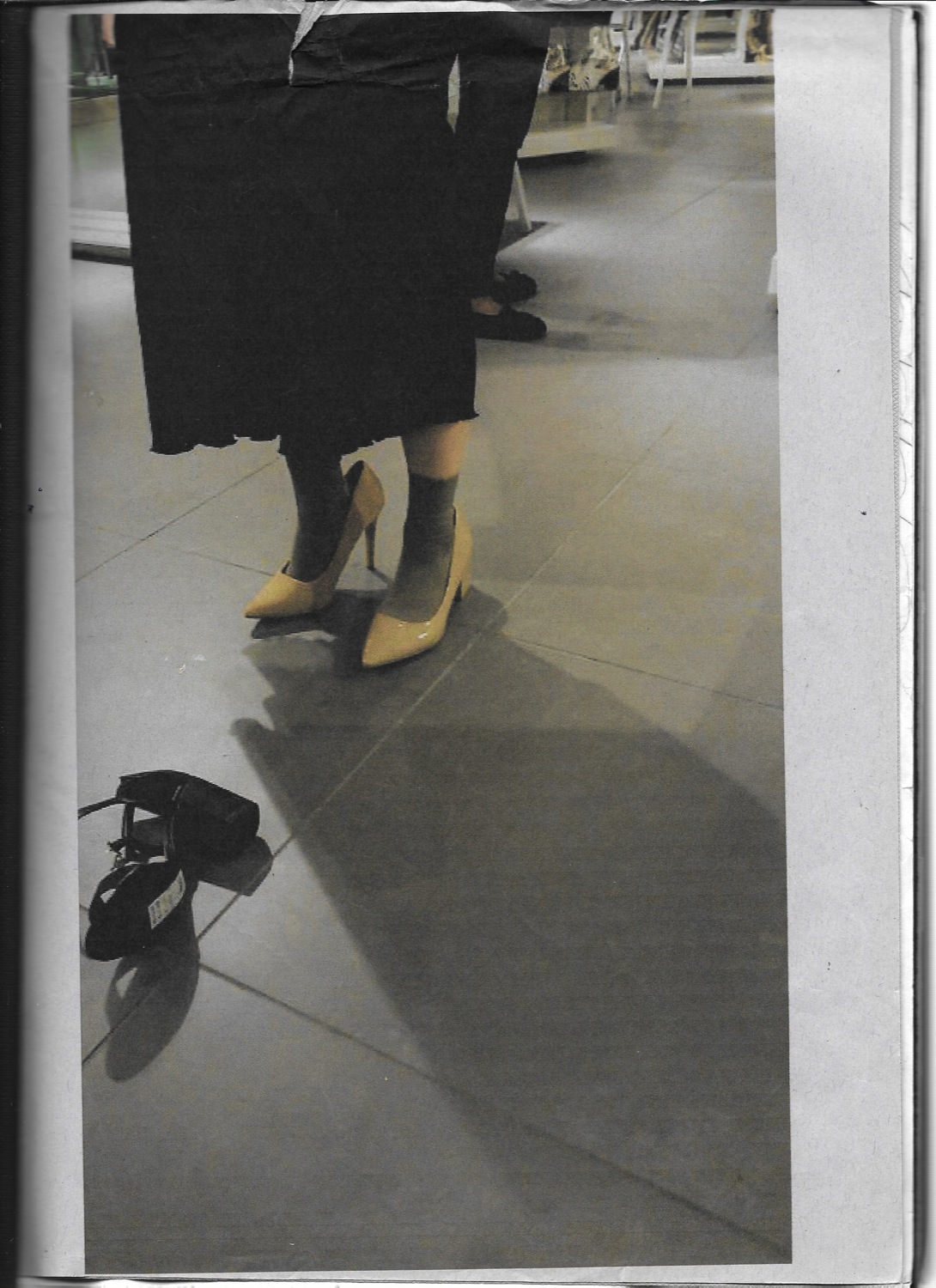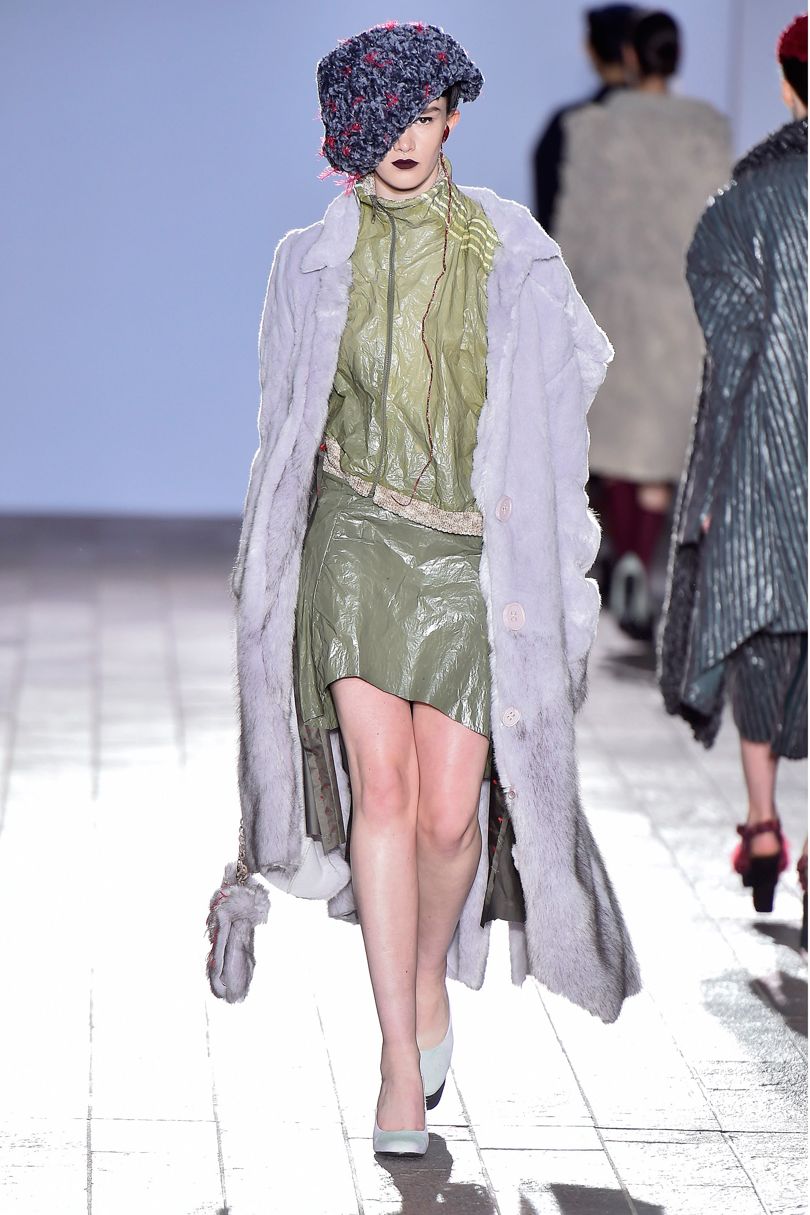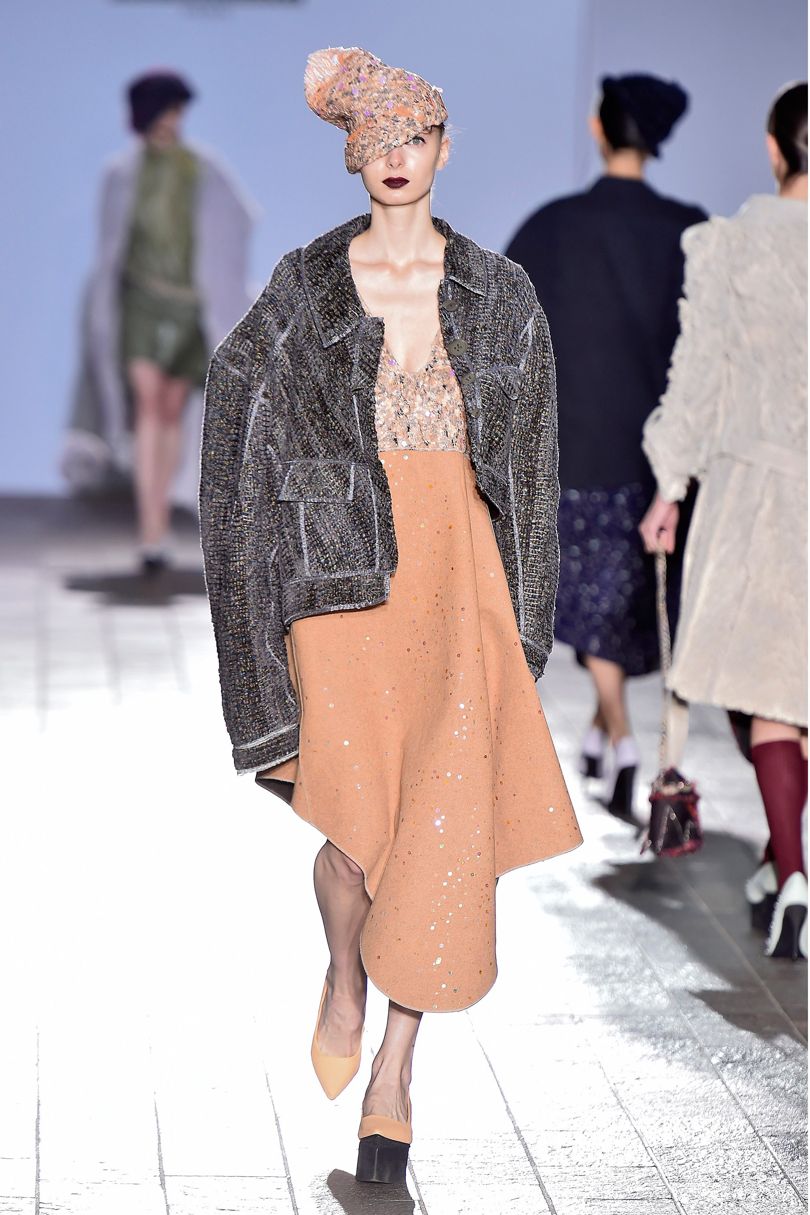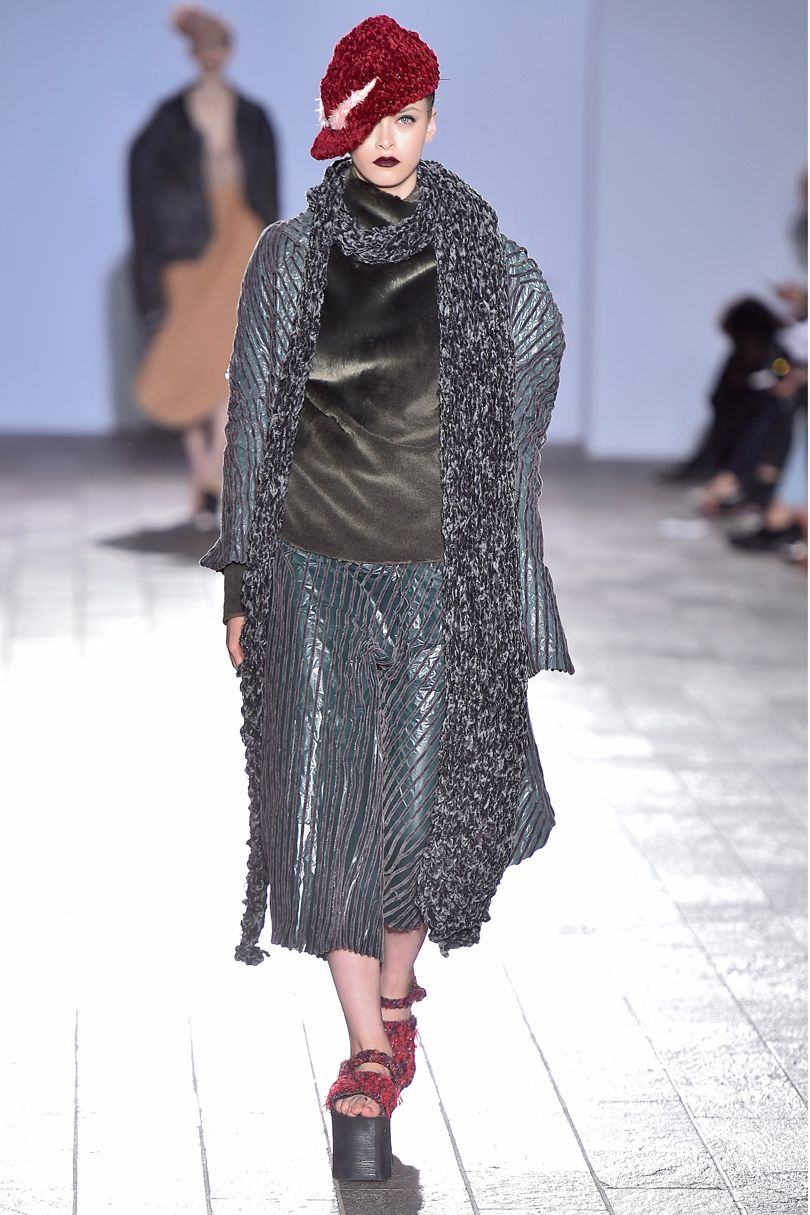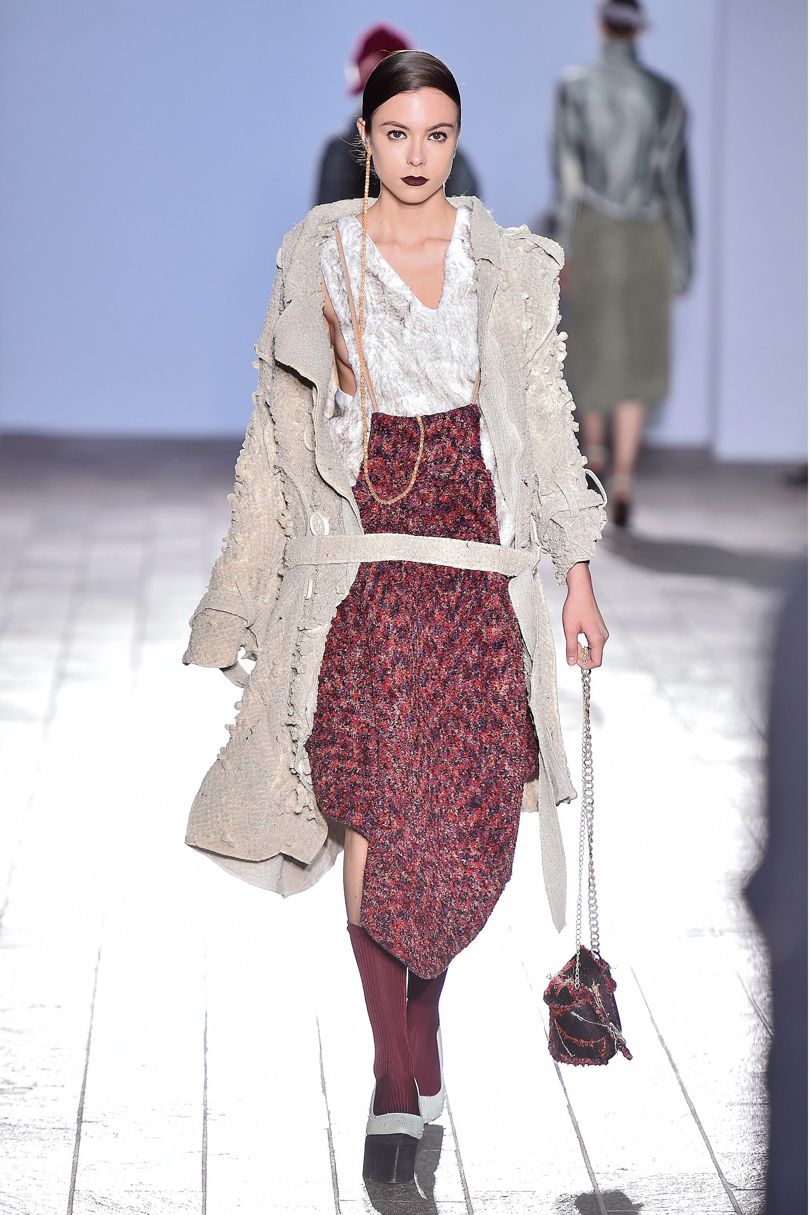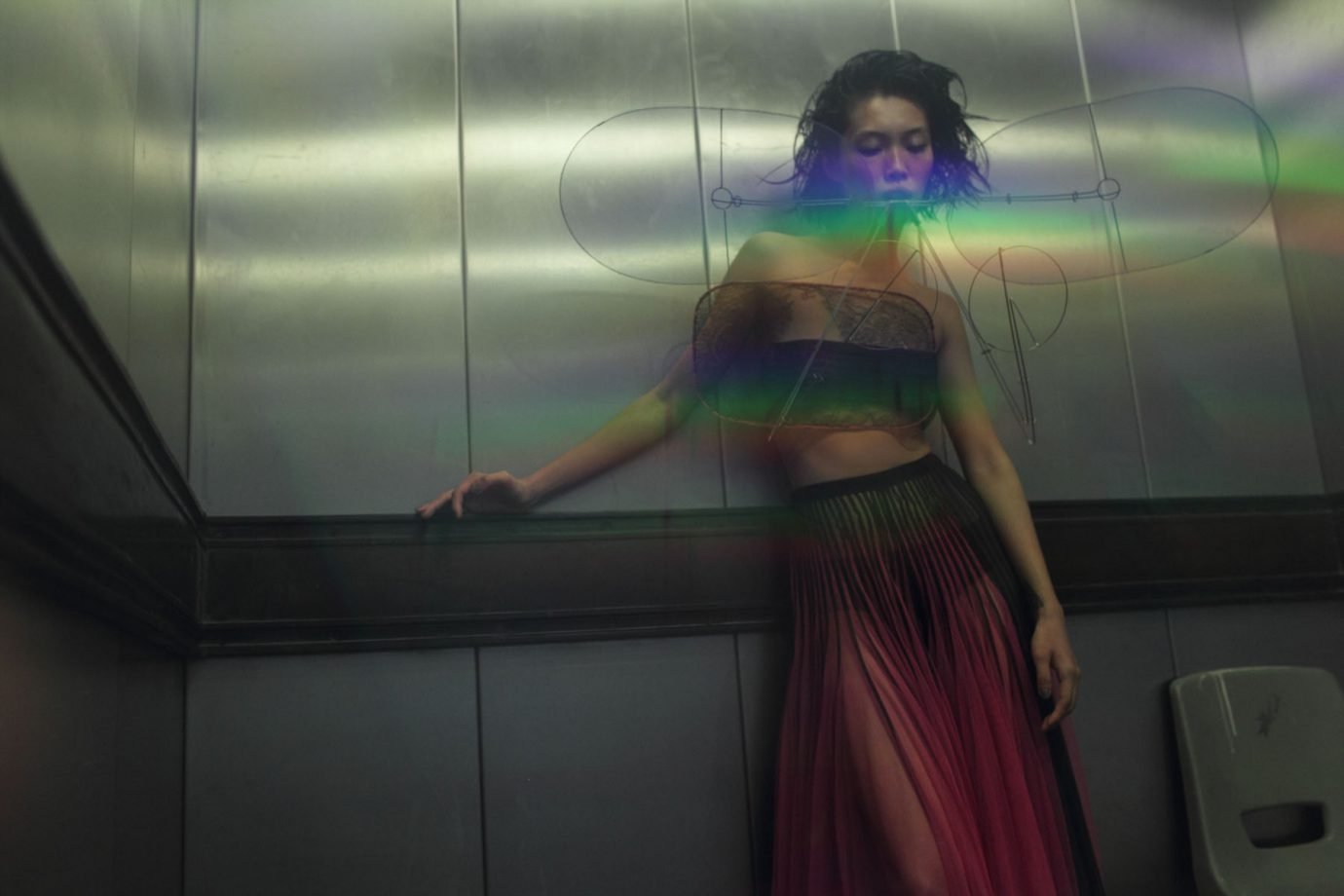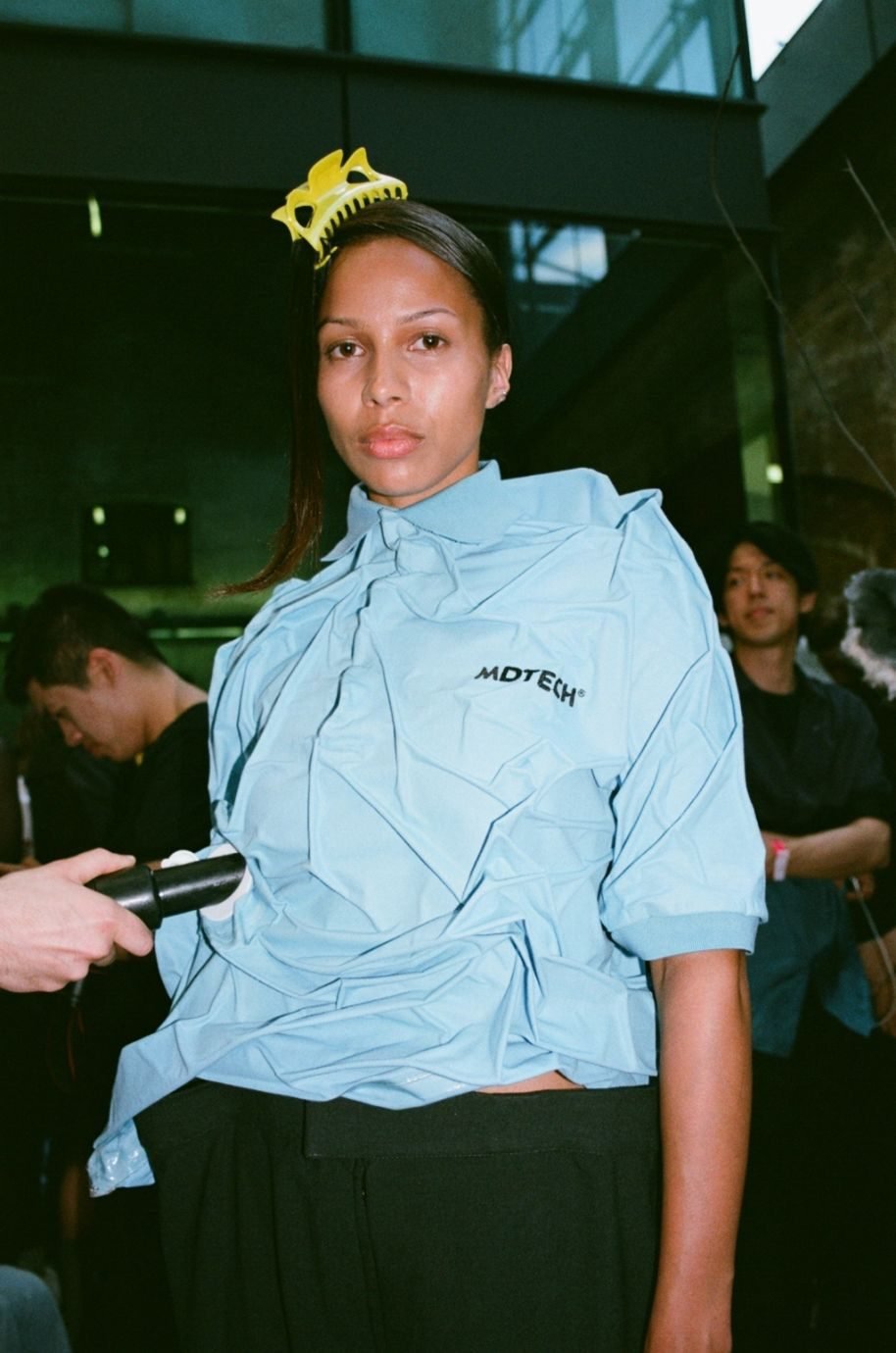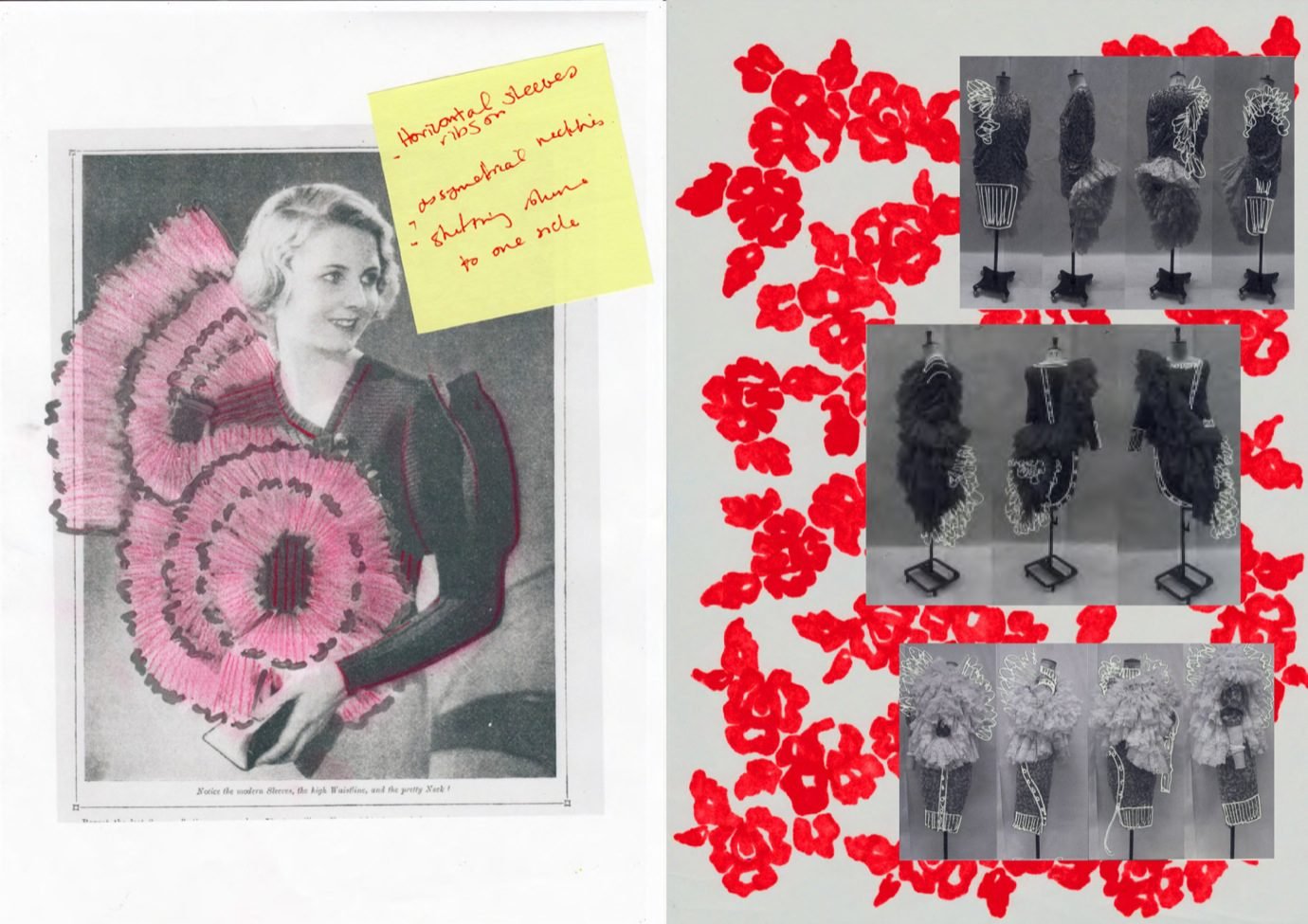“My way of working changed massively in the middle of the year, since I approached my research in a very confusing way in the beginning.”
What was the conceptual starting point of your graduate collection?
I wanted to create a collection for ‘ordinary people’ that could be worn for a long period of time, instead of a one-season-wonder which is tailored for an exclusive fashion audience. By observing people passing by on the street, I realised that the clothes people are wearing are actually quite similar; they only seem to differ in small details like colours, lengths, etc. Mostly we wear a certain range of clothes that can be categorised into shirts, jackets, trousers or skirts. So hypothetically, amongst plenty of other different types of garments, there must be some essential reason to why these few items has survived throughout the history of fashion. I wanted to develop these common items and make them a bit different, or just slightly distinctive. So I experimented with how the silhouettes would look from above, like the angle of a CCTV-camera, and how the fabrics and patterns changed from that specific perspective. If this would be our natural way of seeing things, people we encounter every day on the street would probably look different.
Is it a challenge to translate a very conceptual idea into something practical?
Even though the concept for my collection seems very abstract and conceptual, it’s entirely about visuality. All I have to do is to follow that visual idea as a direction into a physical world.
How did your collection develop during the course of the year? Did you face any serious challenges during the production process?
My way of working changed massively in the middle of the year, since I approached my research in a very confusing way in the beginning. I dealt with my project as a very abstract subject, and tried to create something based on my own analysis of what happens when you look at people from a bird’s eye view. This made it hard for me to understand the project, as well as for the collection to deliver any meaning. I also struggled with getting a clear idea of fabrics, since the Knitwear pathway usually considers the materials ahead of the silhouettes. Eventually I realised I wasn’t applying the elements I liked about my research into my designs. As soon as I realised what I was missing, my work improved and started to tell the original story I wanted to deliver through the collection.
“The attitude of “I like it, so I made it! Ta-da!”, does not work for me.”
What do your design ideas mostly revolve around, do you have a certain theme that you usually return to?
I’ve mostly studied how an object or the world could look different, and replaced a ‘finding’ of new things with a new way of seeing. Eventually I’ve come to focus on two main features: light and perspective. For example, during my muse project I made a short video about the world seen by someone whose eye-vision only perceives black and white colours. I also started with my experimentation of angles and viewing-points when I was in second year, where the initial idea about CCTV-cameras for my final collection came from.
What does your development process usually look like?
For me, a clear concept is really important. I want to explore why a specific idea captures me; find out exactly what I feel, why and what I want to express. The attitude of “I like it, so I made it! Ta-da!”, does not work for me. So I usually take quite a long time to study something before actually starting the project. For this reason, my research is made out of a lot of text compared to other designers.
Do you feel that your collection somehow reflects who you are as a designer?
Yes, definitely. The colour, the style, the mood and the concept. You can’t be satisfied with your work if it doesn’t include yourself at all. Even if it’s not too underlined, I’m sure my own identity will show through the collection.
When do you think your identity as a designer really took shape and a “concrete” form?
Since I just graduated, and only have 3 years of experience in fashion school, I don’t think I have a clear identity as a designer quite yet. I think it is very important to have a firm identity as a designer though, while it’s still important to show variety in each collection. Chanel is the best example, I think. Coco Chanel passed away a long time ago, but her style was super specific and so well put together that Karl Lagerfelt could easily carry on the identity of the brand. Alexander McQueen, on the other hand – even though he was an amazing designer – he didn’t have enough time to develop a continuous style, so there’s a bigger challenge for designers to continue his brand after his dead.
“I’ve also been thinking that fashion designer isn’t probably going to be my future career, which is why I didn’t do the placement year.”
What advice would you give for students choosing their placements?
Although I haven’t had a placement year, I have many friends who did. The only thing I can say is that it doesn’t really matter what brand or department you go to. You can learn something out of every experience, so just make the most out of it wherever you go.
Graduating is about the scariest thing for an undergraduate student to think of. How was that experience for you? Did anyone approach you after the show?
Of course many people have shown their interests in me and contacted me. The majority was for interviews and photo shoots, not many job offers haha. I believe the future is heading wherever it wants to, so I don’t plan anything precisely. When I was in uni, I didn’t think about the close-up reality after graduation. I can only be aware of what I want to do, nothing else. Now I’ve graduated, I’m officially unemployed and am still considering what it is exactly that I want to do in the future, but I think that is TOTALLY FINE!
Do you think you will stay in fashion?
Actually I’m still considering whether or not I want to stay in fashion. I’ve really enjoyed the course in the uni, but I’ve also been thinking that fashion designer isn’t probably going to be my future career, which is why I didn’t do the placement year. But maybe it’ll change.
What are your plans for the immediate future?
Nothing. I just need a break.

